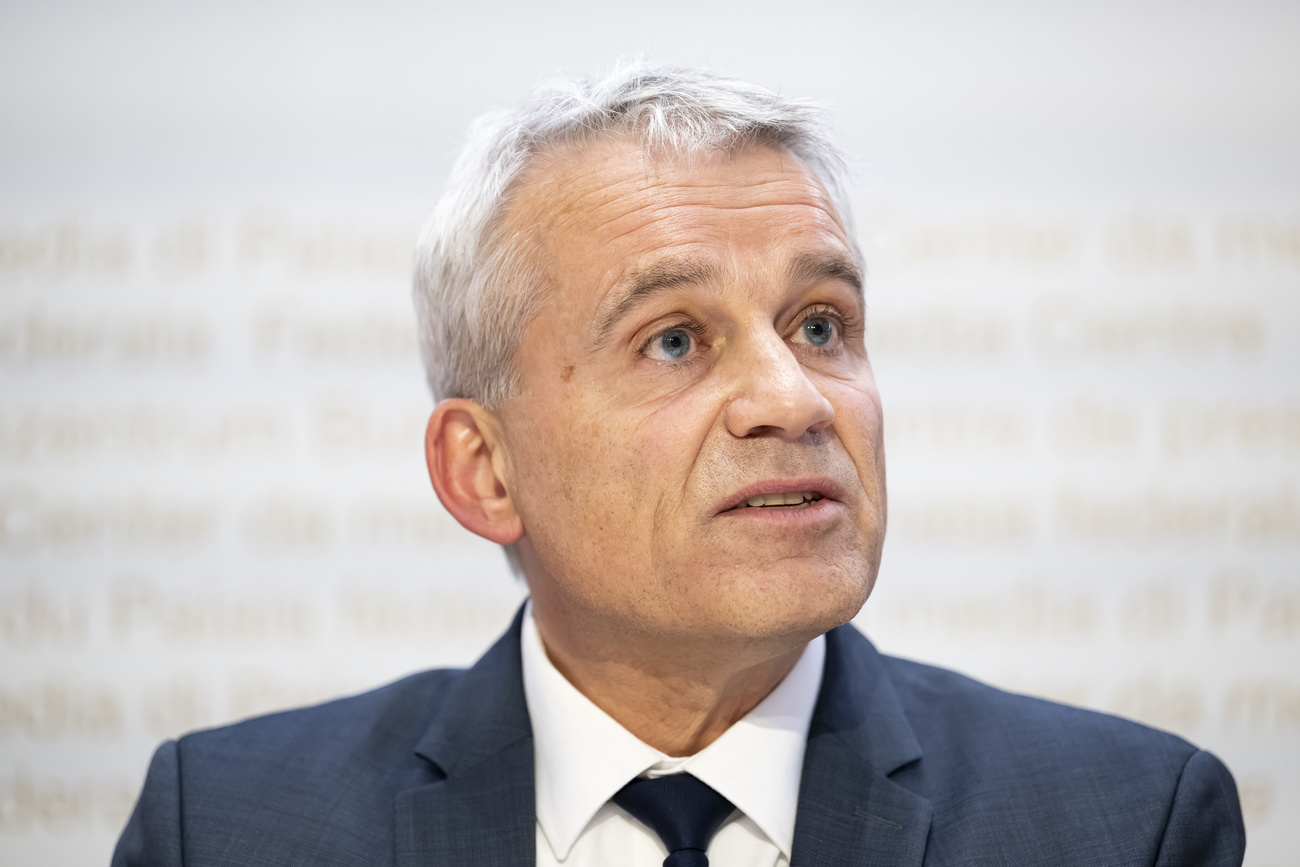
Swiss minister talks crime and security in visit to the Netherlands

Swiss justice minister Beat Jans spent two days in the Netherlands discussing security, police cooperation and justice with representatives of international bodies.
+ Get the most important news from Switzerland in your inbox
The head of the Federal Department of Justice and Police (FDJP) met representatives of Europol, Eurojust, the International Court of Justice and the International Criminal Court on Wednesday and Thursday, the Swiss government said in a press release on Friday.
Jans also visited Rotterdam to get a first-hand impression of the work being done by law enforcement agencies to combat drug trafficking and smuggling.

More
Fedpol chief: ‘Swiss police resources insufficient to fight Mafia’
He was briefed on the operation of the Passenger Information Unit (PIU) set up by the Dutch authorities to process air passenger data. Switzerland is currently preparing the legal basis for a similar service.
The Swiss government is also working with Europol, which fights cross-border crime, and Eurojust (judicial cooperation in criminal matters), two EU agencies based in The Hague, with which cooperation “is working well”, the press release notes.
The EU is preparing to strengthen Europol’s mandate, so that in the future it will be able to enter alerts for third-country nationals in the Schengen Information System. According to the Swiss justice ministry, work is currently underway to incorporate this reform into Swiss national law.
Switzerland is facing challenges of the same nature as those in the Netherlands, in relation to “organised crime,” continues the press release. In Rotterdam, criminal groups are seeking to corrupt the staff of companies operating in the port and to infiltrate their IT systems and logistics processes.
Translated from German by DeepL/jdp
This news story has been written and carefully fact-checked by an external editorial team. At SWI swissinfo.ch we select the most relevant news for an international audience and use automatic translation tools such as DeepL to translate it into English. Providing you with automatically translated news gives us the time to write more in-depth articles.
If you want to know more about how we work, have a look here, if you want to learn more about how we use technology, click here, and if you have feedback on this news story please write to english@swissinfo.ch.

In compliance with the JTI standards
More: SWI swissinfo.ch certified by the Journalism Trust Initiative































You can find an overview of ongoing debates with our journalists here . Please join us!
If you want to start a conversation about a topic raised in this article or want to report factual errors, email us at english@swissinfo.ch.